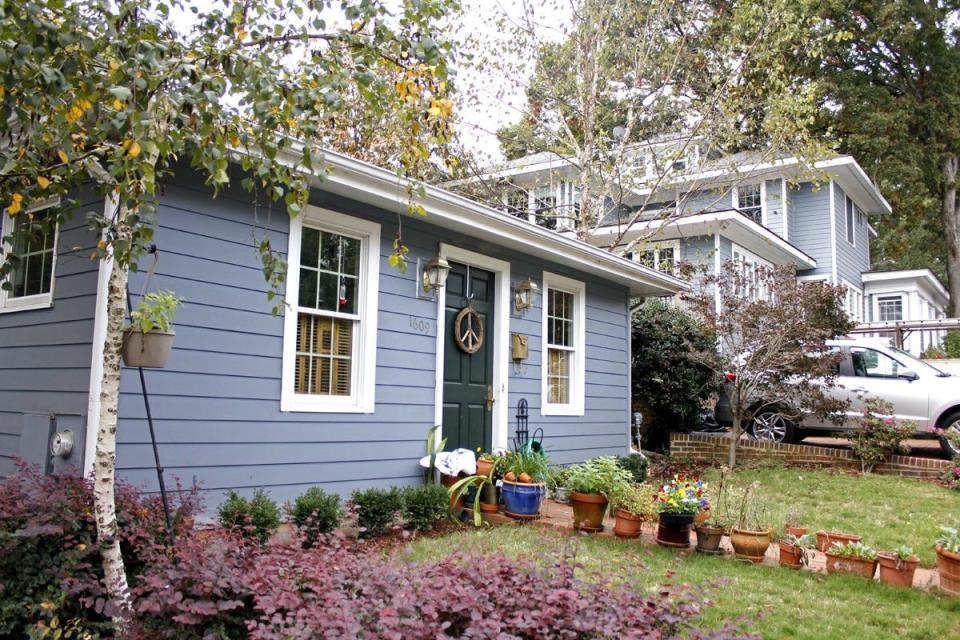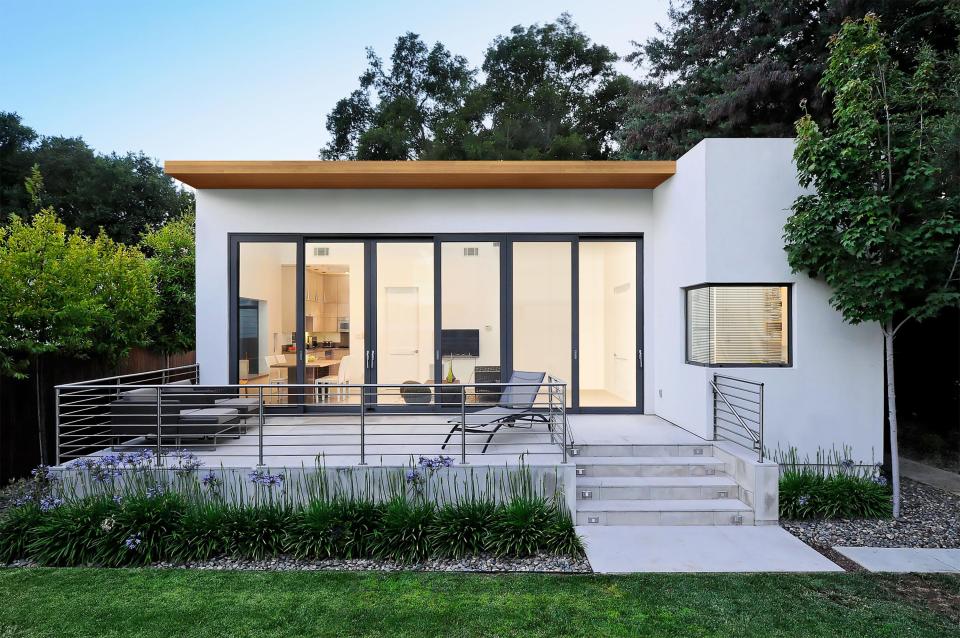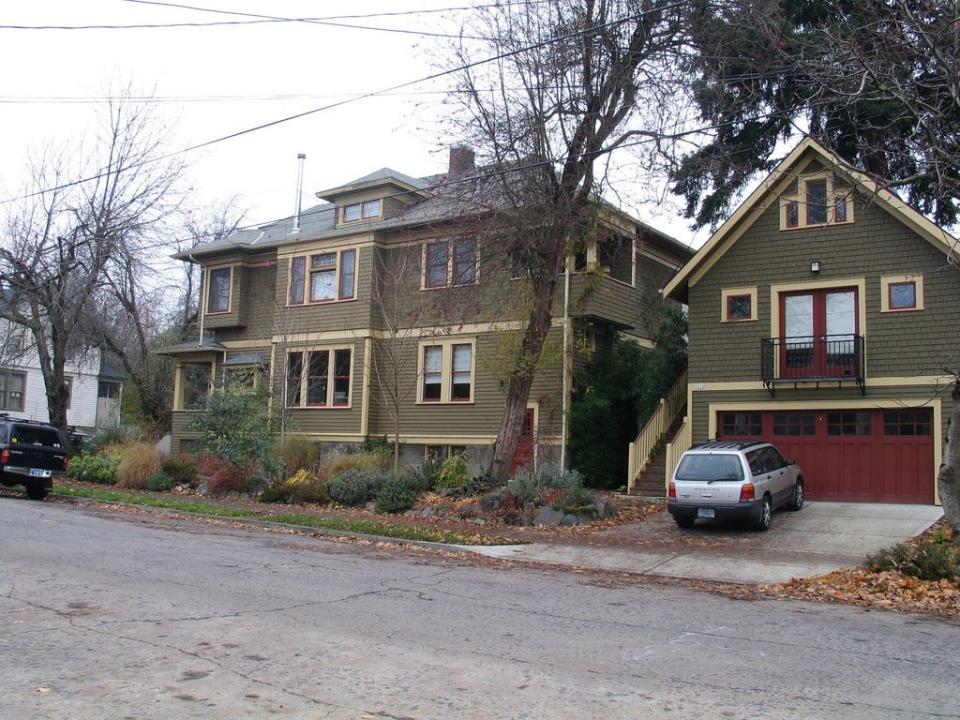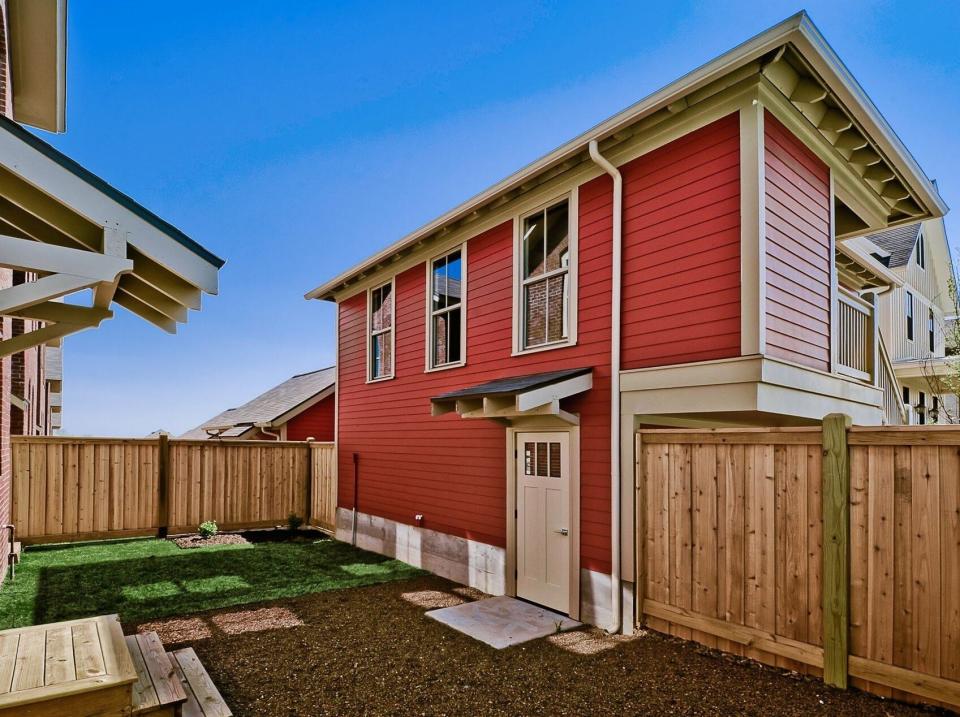Could OKC allow detached in-law units? City planners consider rezoning for accessory dwellings
Call them granny flats, granny units, in-law suites, casitas or garden cottages, but city planners call them accessory dwelling units — ADUs — and they could be coming to Oklahoma City. Legitimately, not just grandfathered in like your grandfather's garage apartment or backyard guest house.
ADUs are being considered as part of an overall overhaul of the OKC zoning and planning code, which now does not allow more than one dwelling per lot on most property zoned for residential use, except in older neighborhoods with recognized nonconforming structures that predate the city's code ordinance.
City planners are working to build on and implement the city's comprehensive guiding planning document, planokc, authorized in 2015. Community meetings and surveys the past few years yielded information and public opinion that are guiding the development of a new code to eventually be presented to the city council, said Lisa Chronister, assistant director of the OKC Planning Department.

In the meantime, planners are at work distilling broad ideas into specifics for a new code with new zoning districts based on land use typology areas, or LUTAs. Among many other changes, the code rewrite considers allowing for accessory dwelling units.
"We are still in the 'development phase' of the project, which includes presenting to various stakeholder groups," Chronister said. "It will be some time before the proposed new code is presented to Planning Commission or City Council. We have yet to present any detailed development standards for ADUs to any stakeholders but we are working on them."
Since ADUs would be new to OKC, here's an introduction.
What you need to know:Insights Realtors see in the OKC-area housing market right now
What is an ADU? A few different structures qualify as accessory dwelling units

An ADU is a secondary housing unit, not a specific kind of structure, according to BuildinganADU.com, a clearinghouse for all things ADU by builder Kol Peterson in Portland, Oregon, a leading city in ADU development. They be attached or detached from the main house. OKC planners are looking into both, Chronister said.
Types of ADUs include:
Detached accessory dwelling units, sometimes called DADUs.
Garage conversion ADUs.
ADUs above a garage or workshop.
Addition ADUs, or "bump-outs" built onto an existing home.
Basement conversion ADUs.
Internal ADUs, where part of the primary house has been converted.
SMARTS:Jasco Products delivers smart home devices from a smart warehouse in Oklahoma City
What defines an in-law suite or ADU?

"While their structural forms vary, ADUs share some common traits and face common design and development challenges," BuildinganADU.com says. "For one thing, the fact that they’re secondary housing units on single-family residentially zoned lots places ADUs into a unique category of housing. And ADUs also have some other distinguishing characteristics that help further define, differentiate, and distinguish them from other housing types."
According to BuildinganADU.com:
ADUs are accessory and adjacent to a primary housing unit.
ADUs are significantly smaller than the average U.S. house.
ADUs tend to be one of two units owned by one owner on a single-family residential lot.
ADUs tend to be primarily developed asynchronously from the primary house by homeowner developers.
A large range of municipal land use and zoning regulations differentiate ADU types and styles, and dramatically affect their allowed uses.
Vast numbers of informal ADUs exist compared to permitted ADUs.
OPPORTUNITY:What do OKC, Tulsa housing markets offer 'mortgage-ready' Latinos? Opportunity, study says
What are some city planning challenges to allowing ADUs?
Daniel Harrison and Erica Craycraft-Bartlett with OKC's Freese and Nichols, an urban planning and design consultancy, outlined basic questions in a presentation on alternative housing types to the Oklahoma Chapter of the American Planning Association:
• Defining ADUs: Is it attached to the main dwelling or detached? Does it have a kitchen?• Occupancy: Can only family members live there? Can it be rented?• Use: Is it still a “single-family” use? Can it be used for a home occupation?• Dimensional standards: Is there a minimum size? Is there a maximum size or percentage of main building?
Who wants accessory dwelling units, ADUs, in Oklahoma City?

Researchers found "majority support among renters citywide but not majority support from owners" for ADUs, according to a 2021 Housing Affordability Study conducted for the city by Economic & Planning Systems Inc. Chronister said the biggest support is from people in the central part of the city.
An advisory group of housing industry representatives, private and public stakeholders, members of the community, and affordable housing advocates recommended exploring ADUs, with nearly 70% of the group in favor of using incentives for their development.
The advisory group also encouraged city planners to:
"Examine the market potential for ADUs among the growing population of young professionals who may be interested in living in more urban settings."
"Establish ADUs in appropriate context."
"Remove minimum square footage for new developments — for land and dwelling units."
"Eliminate single-family zoning."
Can you afford to rent an apartment in downtown OKC? Here's the top 10 most, least expensive
What renters and homeowners think the city of OKC should do about ADUs and other housing issues
The study revealed residents' views on ADUs, housing diversity, improving housing quality, and other issues, and broke down findings by renter versus owner sentiments.
Acceptability of ADUs. "There is majority support among renters citywide, but not majority support from owners."
Comfort with Same Style Housing in Neighborhood. "There is more agreement from owners, but no clear statement of support either way."
Comfort with Gradual Changes in Housing Type Diversity. "As with the acceptability of ADUs, there is also majority support among renters, but less support among owners."
City Involvement in Remedying Housing Quality Problems. "Here there is a clear mandate from both renters and owners that the City should be involved in addressing quality problems."
City Ensuring Adequate Supply of Affordable and Safe Housing. "Here also is a clear mandate of support from renters and owners."
Market Will Take Care of Itself. "Nearly two-thirds of renters and just over half of owner believe that the market will not take care of itself."
SIGN UP:Weekly e-newsletter, Real Estate With Richard Mize
Senior Business Writer Richard Mize has covered housing, construction, commercial real estate and related topics for the newspaper and Oklahoman.com since 1999. Contact him at rmize@oklahoman.com. Sign up for his weekly newsletter, Real Estate with Richard Mize.
This article originally appeared on Oklahoman: In-law suites, accessory dwelling units, could come to OKC in code overhaul
